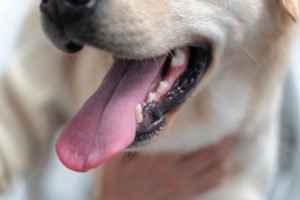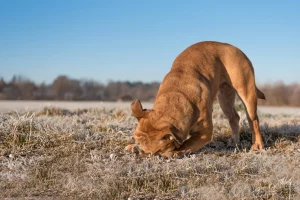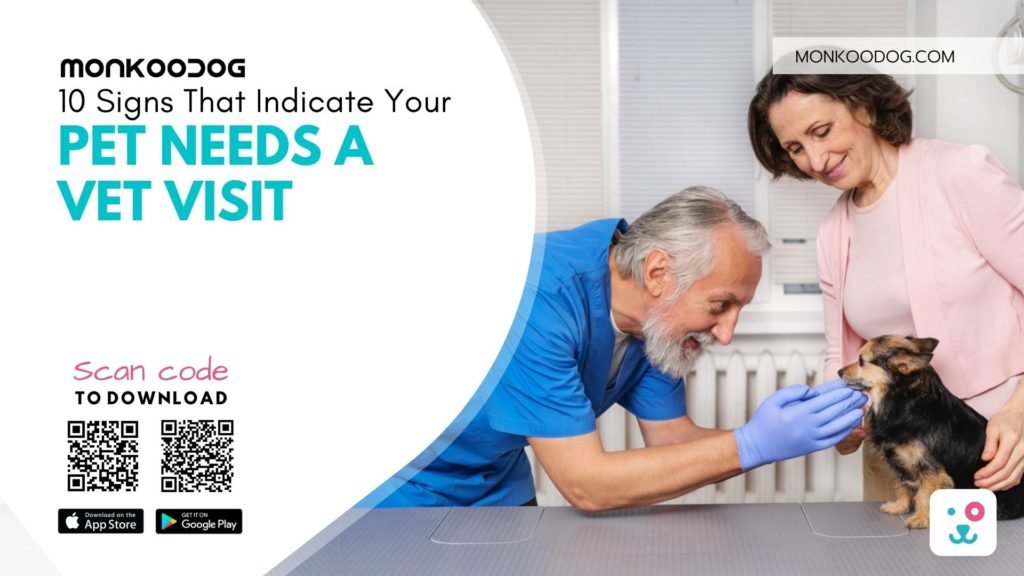Pets are our beloved buddies and we often treat them as our family members. Naturally, we try to do anything to keep them happy, healthy, and safe. But sometimes, we fail to notice that there might be any hidden health issues that our pets are facing.
Pets often communicate with us in a way that is difficult to understand. They can’t tell us when they are feeling sick or uneasy. Many pet parents take too long to visit their vets, which results in an emergency and eventually death. However, it is our duty as a pet parent to keep a regular check on our pet’s health, and in case they show any changes in their behavior, it is essential to take them to vet visits.
A veterinary doctor will understand the condition of your pet and give him the required treatment. Consult a veterinary clinic near you to provide preventive care for your pet. Preventive care including vaccinations and regular health checkups at least once a year is essential.
In this blog, we will let you know about the top signs that indicate it is time for our pet’s vet visit.
How To Tell That Your Pet Needs A Vet Visit?

It may be during the day or at night, or an emergency health issue may occur to your pet that needs an immediate visit to a veterinary doctor. You have to be prepared for such situations.
A veterinary doctor can understand that it is hard for pet parents to know when their pets need emergency vet visits. If your pet shows some signs that you are unsure of the conditions, contact the best veterinary doctor near you for advice.
Given below are some of the signs that indicate the necessary vet visits:
The Warning Signs That Need Emergency Vet Visits:
Change In Appetite And Drinking:
Has your dog’s food habit changed, is he showing no interest in eating his food, or is he eating more than usual? It may be due to any medical issue (might not be an emergency) which needs a veterinary doctor consultation. If your pet is feeling thirsty more often or drinking too much water, then he might be facing some health issues.
He may be having dental issues, digestive problems, infections, or any internal system abnormalities. Unusual eating habits may lead to weight issues or nutritional deficiencies. Your veterinary doctor will suggest some dental care, diet adjustments, or specified treatments for curing the issues.
Difficulty In Breathing Or Rapid Breathing:

Dogs usually pant on hot summer days or after exercising, but if they show breathing irregularities after a rest, or after returning from a cold place, it might be a sign of some health problems. He might be having a cold or allergies or might be having serious breathing problems. A veterinary doctor near you will identify the seriousness of the issue and treat them accordingly.
Lethargy Or Decreased Activity:

Your pet who used to be playful always, might be showing laziness, or feeling low on energy. Occasional tiredness is ok, but continuous laziness may be due to any underlying health issues that have to be addressed. Anemia, illness, or pain might be the reasons for his less activeness.
It is obvious that older pets will slow down their playfulness, but if younger or adult pets are less playful, you need to consult your veterinary doctors. If it is not possible to take your pet to the veterinary clinics, you can seek the help of an online veterinary doctor, who will guide you on how to take care of your pet in such situations. Proper rest and some specific medical treatments will solve the problem.
Excessive Scratching Or Skin Changes:
Sometimes your pet is continuously scratching, licking, or biting themselves. He may be having an allergy or irritation caused by parasites or other allergens. There might be redness, bald patches, or bumps on his skin.
This allergy makes him feel uncomfortable and may also lead to further health issues. Ask your veterinary doctor about the issue and follow the medications that may include flea and tick treatment, antimicrobial shampoos, or other special treatments for allergies.
Vomiting Or Diarrhea:
Vomiting once or twice or having a little bit of diarrhea is not a serious issue for your pet. But continuous changes in stool or frequently throwing up might be a cause of digestive inflammation, a blockage, allergy, or any disorders. If your pet has chewed up some unusual stuff, he may feel vomiting or bloating in the stomach.
Diarrhea or runny stools are the result of food sensitivities, infections, or digestive problems. Sometimes, variations in urine like color changes, increased or decreased urination, presence of blood in urine, may be due to urinary tract infections or kidney problems.
A veterinary checkup might include stool analysis, urinalysis, or X-ray imaging. They will also suggest a change in his diet habits followed by necessary medications.
Unexpected Weight Loss Or Weight Gain:
A sudden weight loss as well as weight gain may be a concern to pet parents. Weight loss might be due to digestive disorders, food infection, or sometimes might be due to cancer. It even affects the energy levels and the immune system of your pet.
A Sudden increase in weight might be due to hyperthyroidism, hyperadrenocorticism, parasites, or bloating. Seek the help of veterinary care doctors for your pet’s abnormal weight changes. The veterinarian may suggest medications, a healthy and nutritional diet, and proper exercises to maintain weight.
Difficulty In Moving Or Poor Balance:

Whenever you notice a change in your pet’s movement or if he is unable to maintain his balance, take your pet to the vet immediately. A small limp might be neglected, but some lumps may be cysts or cancer cells. Balance issues, a strained tendon, and awkward movement are the results of neurological problems.
Your veterinary doctor will do thorough research on your pet, and based on that he will suggest the next steps that include blood tests, monitoring, and diagnostic procedures like biopsies, imaging, or other proactive treatments.
Irritated, Weeping, Or Redness Of Eyes:
Irritation and infection result in a problem in your pet’s eyes. If they are red, filled with tears, or producing excess mucus, then take them to a veterinary clinic near you. Sometimes, it might be due to scratches or other eye injuries.
Your vet will check them and give the necessary treatments.
Conclusion:
Being part of the family, our pets hold an immovable place in our hearts. It is essential to take them to the veterinary clinics whenever needed. Not only for regular health checkups and vaccinations, they need to be taken to the vet if they are feeling uncomfortable.
Taking care of pets is a prime priority of every pet parent. If your pet shows any unusual symptoms then a vet visit is a must. If you can’t take your pet to veterinary hospitals, at-home vet service is available. You can also consult any online veterinary doctors in case of any emergencies.
This is all about the signs that show your pet needs a vet visit.
Drop your comment and your feedback is welcomed.
FAQs:
What are some signs that my pet may need to see the veterinary doctor?
- Some signs that show your pet needs to see the veterinary doctor are increased thirst and appetite, change in his behavior, lethargy, vomiting and diarrhea, constant itching or irritation of the skin, uneasiness in breathing, and many more.
What behavioral changes should I watch for in my pet?
- If your pet feels lethargic, if he is hyperactive, whining, stressed or anxious, constantly barking, biting himself, or other behavioral changes you need to watch for your pet.
- Are changes in eating or drinking habits a cause for concern?
- Yes, changes in eating or drinking habits are a cause of concern. It might be due to digestive problems.
What respiratory symptoms should I be concerned about in my pet?
- Look out for the below possible respiratory symptoms in your pet like uneasiness in breathing, cough, nausea, vomiting, loss of appetite, and fever.
How can I monitor my pet’s skin and coat for potential problems?
- If your pet has a constant irritation then check for potential problems.
- Dandruff
- Itchy skin coat
- Rashes or patchy coat
- Unusual skin texture and color
- Scabs or open pores and many more.

